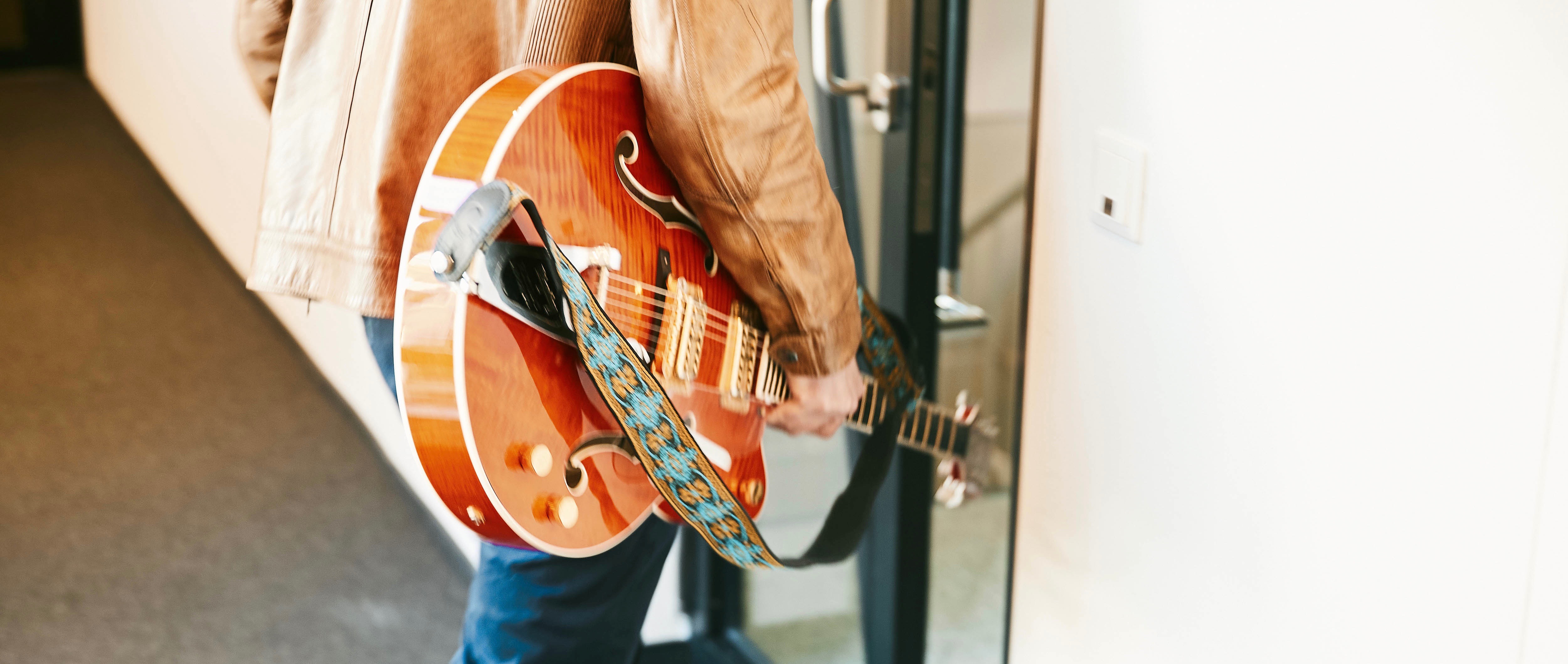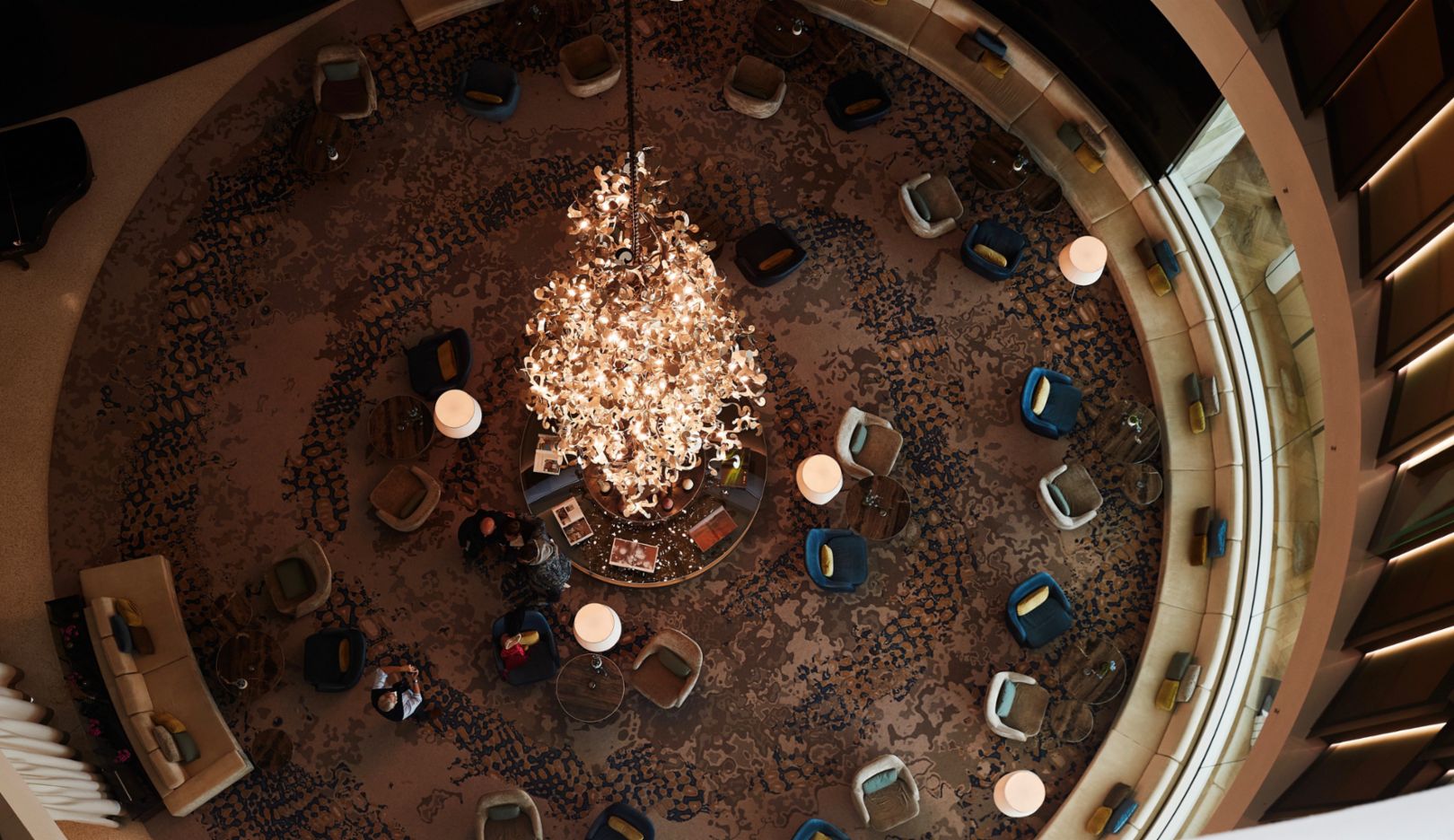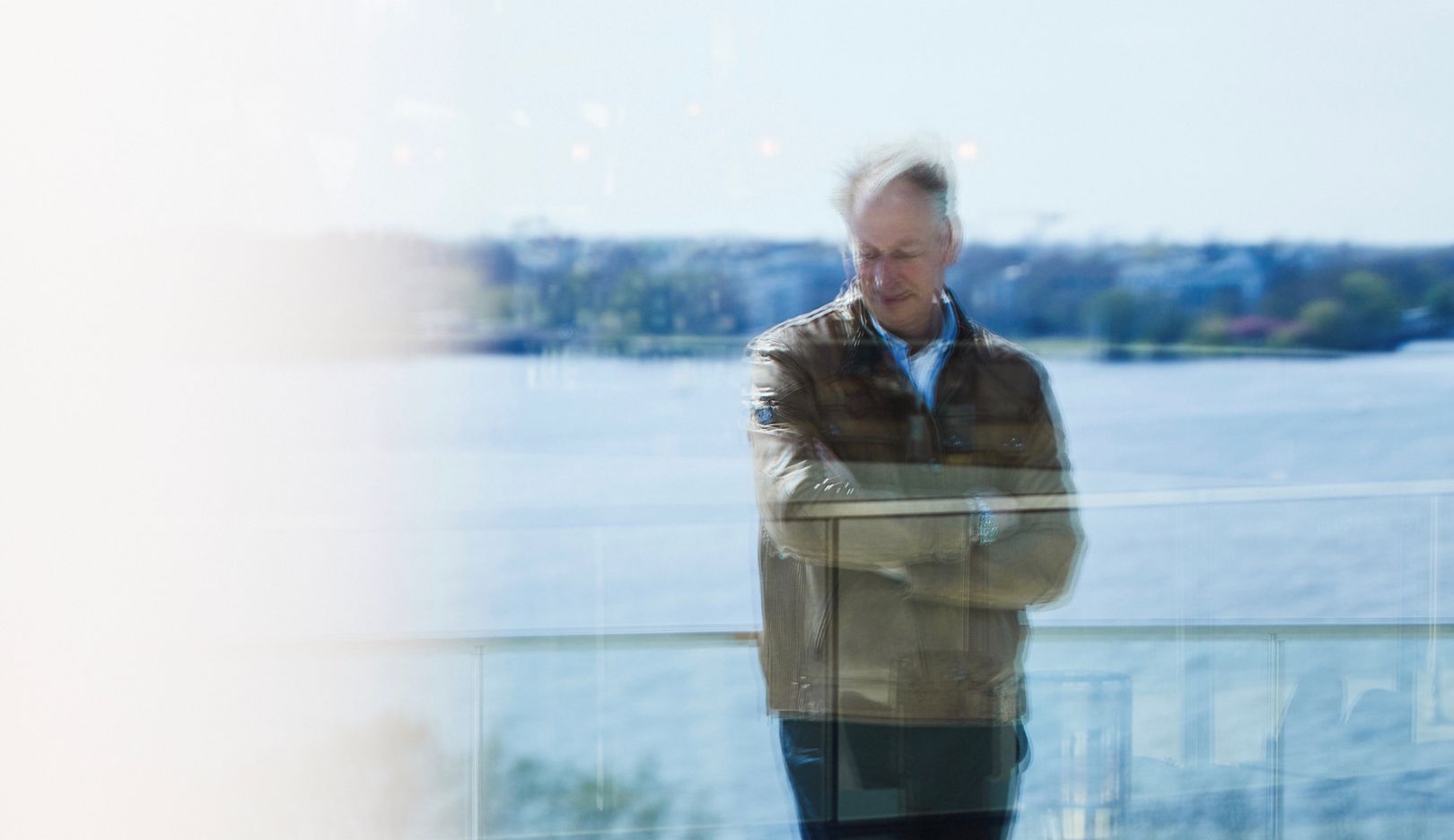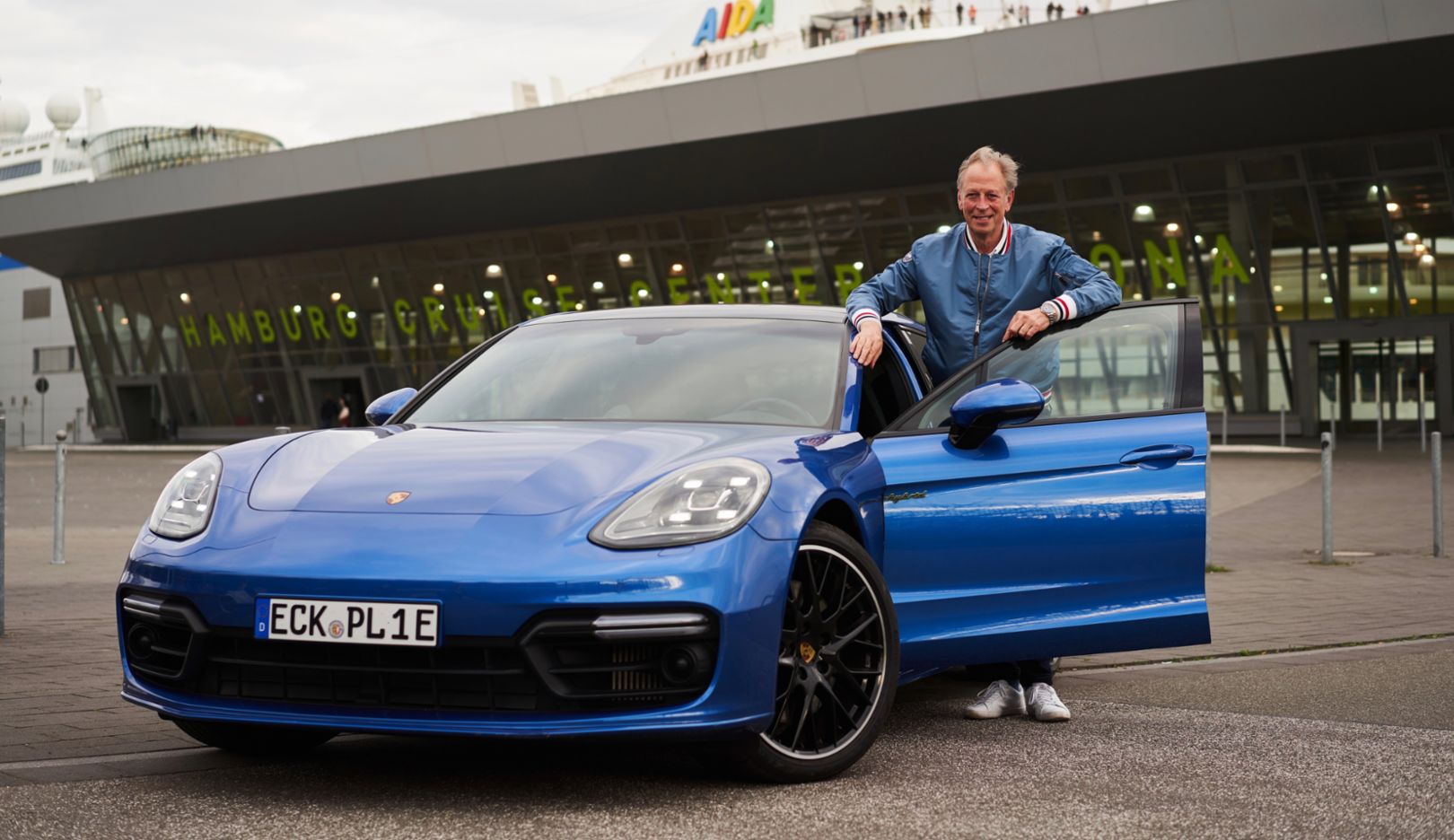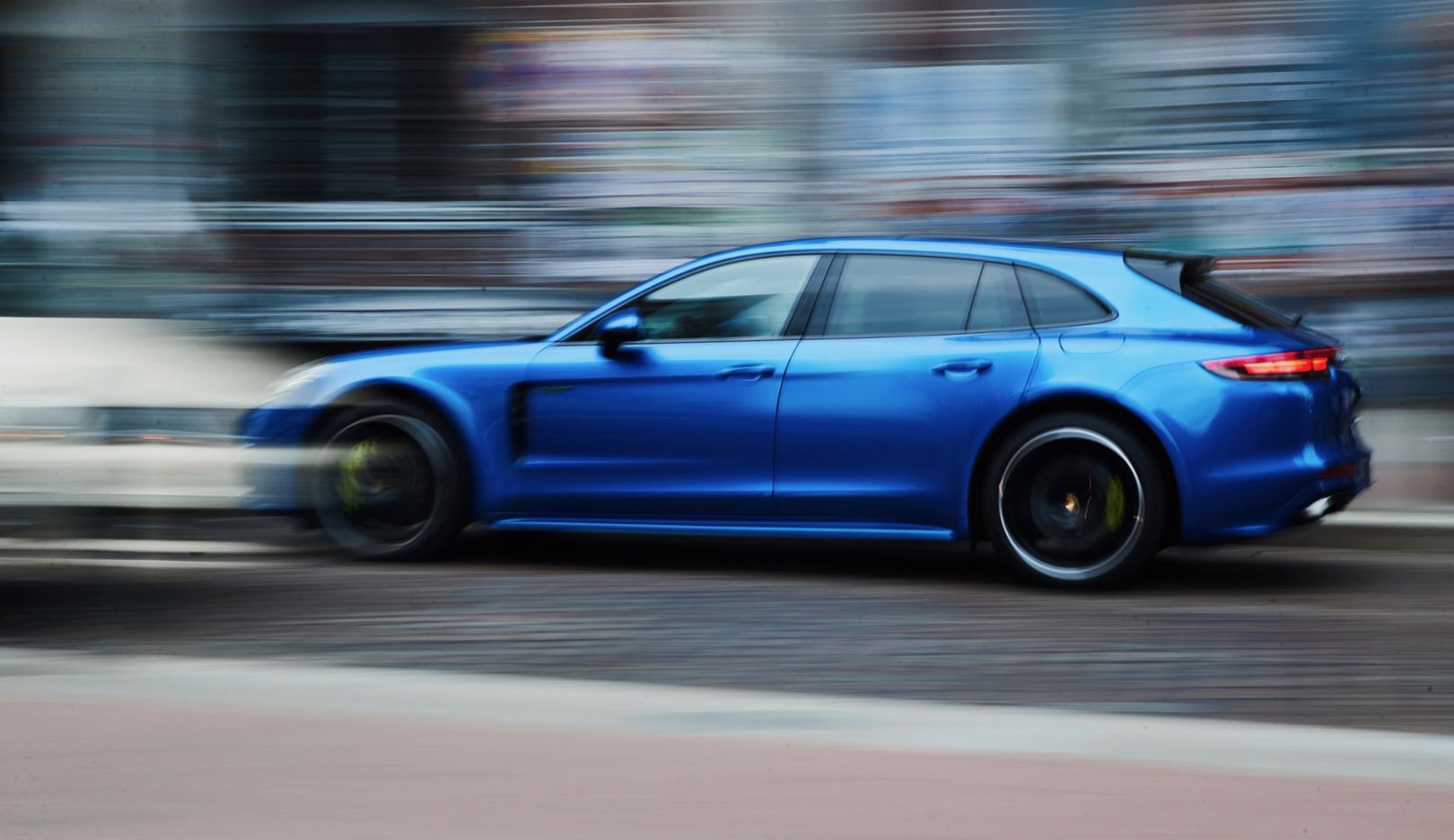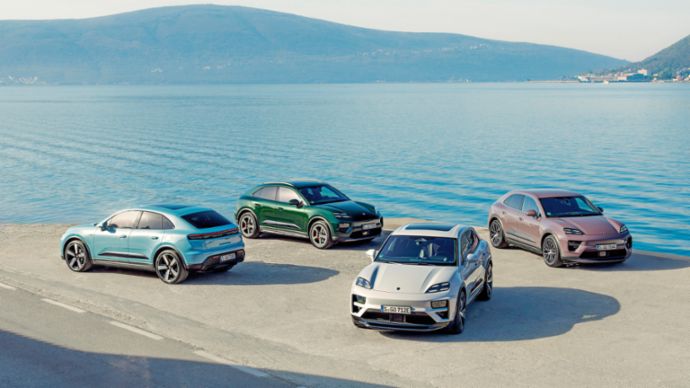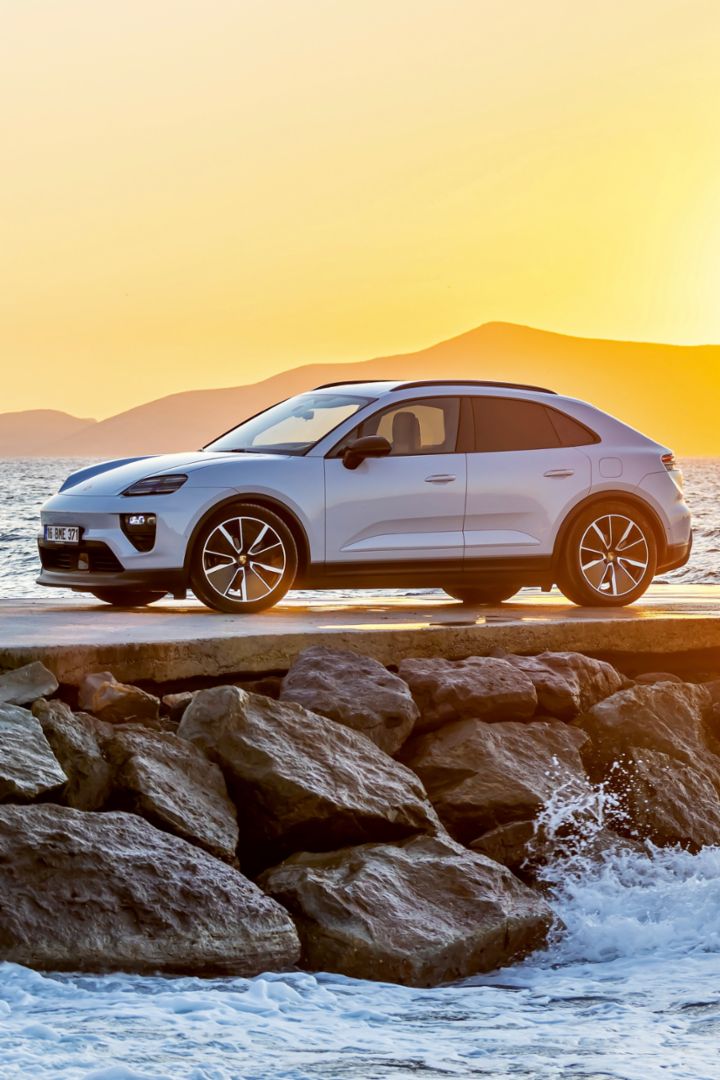Beyond Silence
Arndt-Helge Grap once wanted to be a music teacher. Now his company Radiopark develops soundscapes for businesses. Globally, around the clock, and tailored to the specific brand experience.
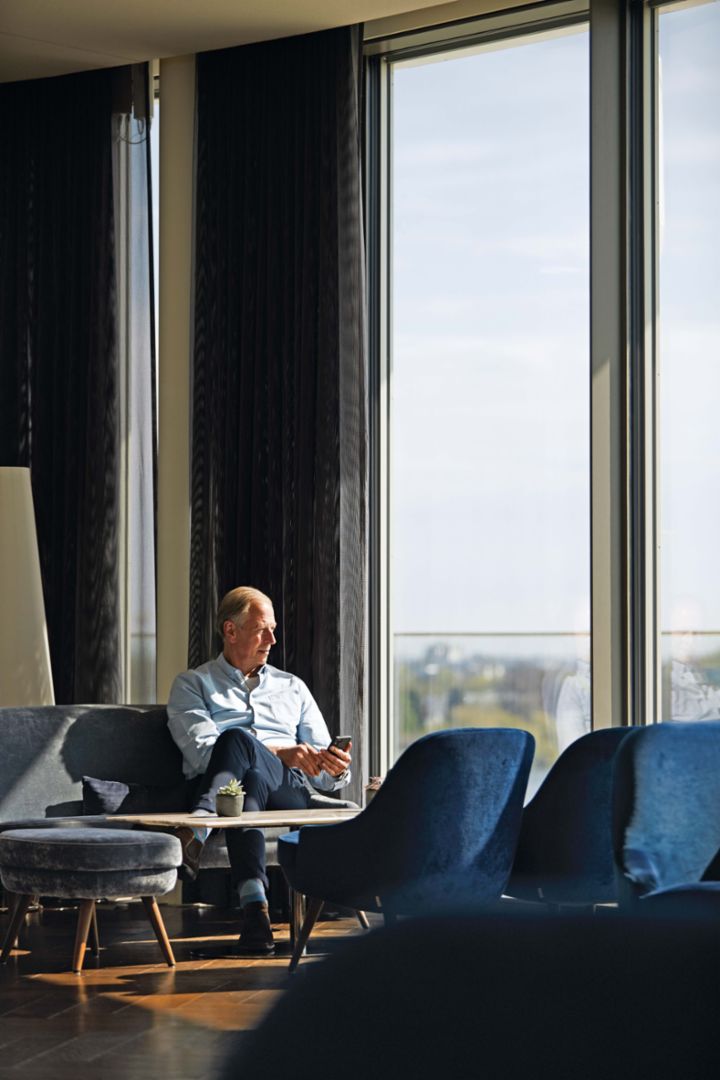
Ambience of well-being:
Radiopark founder Arndt-Helge Grap and his company create soundscapes for special places.What’s the sound of Porsche? Not the car – the brand. This question is posed to Arndt-Helge Grap, 58, and before answering he tilts his head as if he were listening to a sound from far away. “Porsche sounds elaborated, modern, loungy, cosmopolitan, unique,” says Grap. “Not mainstream, not top 40 – more David Bowie. The cars are style icons.” This is his job – picking the right tone colors and painting coherent pictures to penetrate people’s ears and hearts with music. His company Radiopark produces carefully curated background music around the world.
Custom playlists fill cruise ships, hotels and airports, sports arenas, restaurants, and gyms with sound – not to mention a number of Porsche centers. Grap creates the music programs together with more than 30 employees in Hamburg, Berlin, Munich, Vienna, Miami, and Dubai, tailoring them to the location, the time, the desired atmosphere, and the hoped-for effect. To put it simply, Radiopark works much like modern-day music streaming services. Although Radiopark was actually on the scene first. And, above all, its songs aren’t selected by algorithms, but by people with a finely honed feel for music.
"Porsche sounds modern, loungy, unique – like David Bowie.”
Arndt-Helge Grap
The hub of this sound system is located on the fourth floor of an office building in Hamburg city center. The way to Arndt-Helge Grap’s office is lined with guitars. He was given his first guitar at the age of 11. At 15, he formed a band at his high school in a small town north of Hamburg. It was the late 1970s. Grap was soon achieving success in regional music competitions with lyrics written in the Low German dialect.
He knew then that he wanted to study music. Instrument lessons, voice training, concerts, a master class with Abel Carlevaro in Buenos Aires, and English and pedagogy as his minors – his studies were like a major allegro. He abandoned his original ultimate goal of becoming a teacher, however, after sitting in on classes at a school. “The music teacher didn’t know a single song in the charts and things didn’t seem to be terribly harmonious among the rest of the teaching staff either – so I was absolutely certain this wasn’t the place for me.” An alternative presented itself on the bulletin board in the university auditorium: “Wanted: presenters for a new radio station!” So Grap went there.
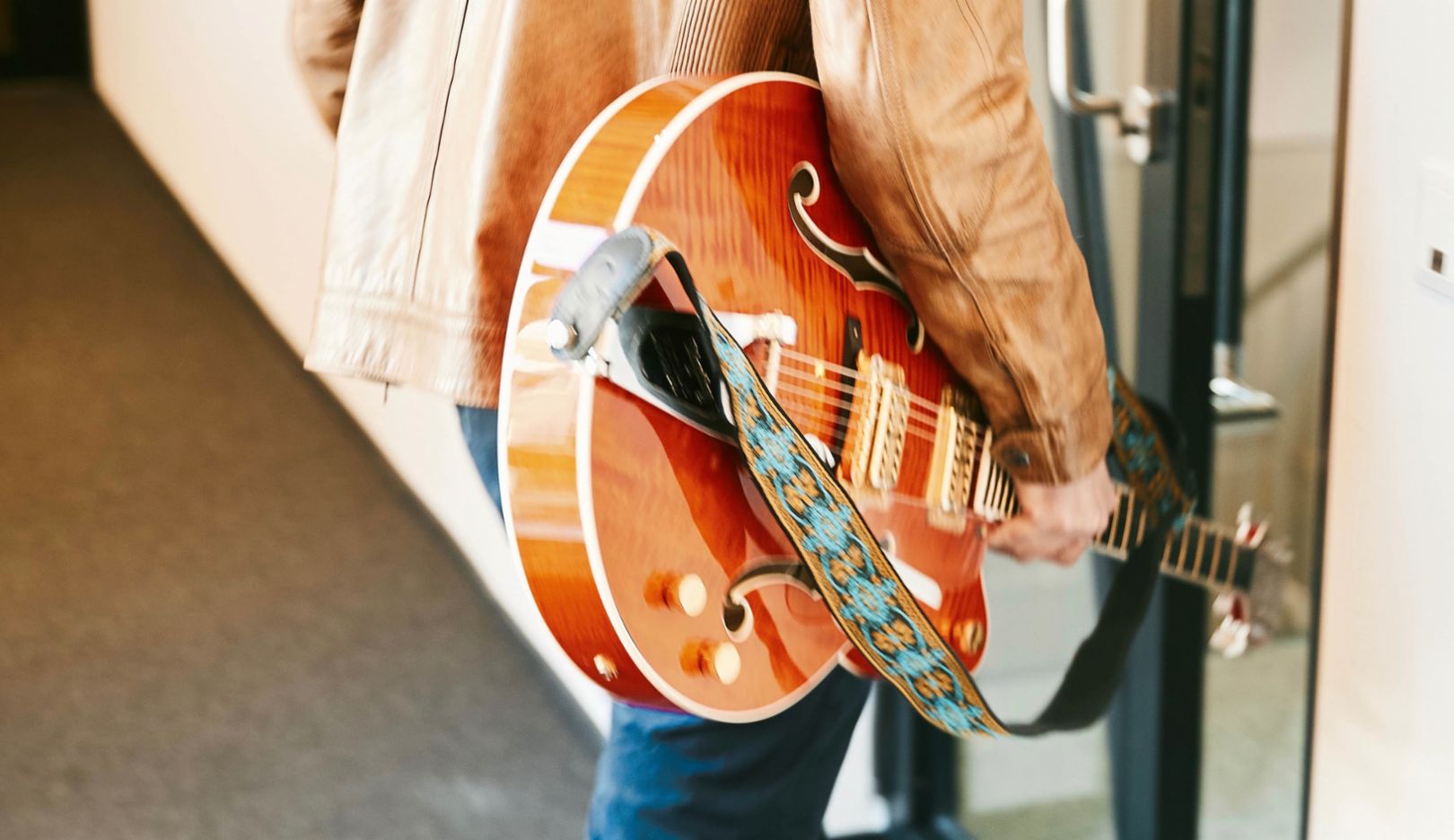
It all started with a guitar:
Grap initially dreamed of being a professional musician, then he wanted to be a music teacher. Instead, he became a music expert.Shortly afterwards, he was sitting in front of a microphone at Radio Hamburg, one of the first private radio stations seeking to be fresher, better, quicker than the established stations in Germany’s outdated media world. Grap had found his playground. He began as a presenter, moved into celebrity interviews and, from the mid-1990s, produced entire shows together with a colleague. Things became problematic when the radio stations began to drastically narrow their array of music in order to be instantly identifiable for specific groups of listeners. The program planners called it “format radio,” while music aficionados mockingly called it “Dudelfunk,” meaning “blaring radio.” Grap thinks back and explains: “Our shows were no longer in demand. We were interested in exciting music, not the same thing all the time.” It was again time to move on.
This time, though, no alternative appeared on a bulletin board. Rather, Grap received an email in spring 2002. An acquaintance working for the shipping company that owned what was then still the very new cruise ship AIDA wrote something along the lines of: “The music’s no good. We’re a club ship, but the same old music gets played all the time on a CD changer.” Grap’s response: “Throw the CD changer overboard. What you need is a computer that precisely controls when which song is played in which part of the ship.” Nothing of this kind existed at the time. Grap said: “I can provide this. The necessary technology and the music.”
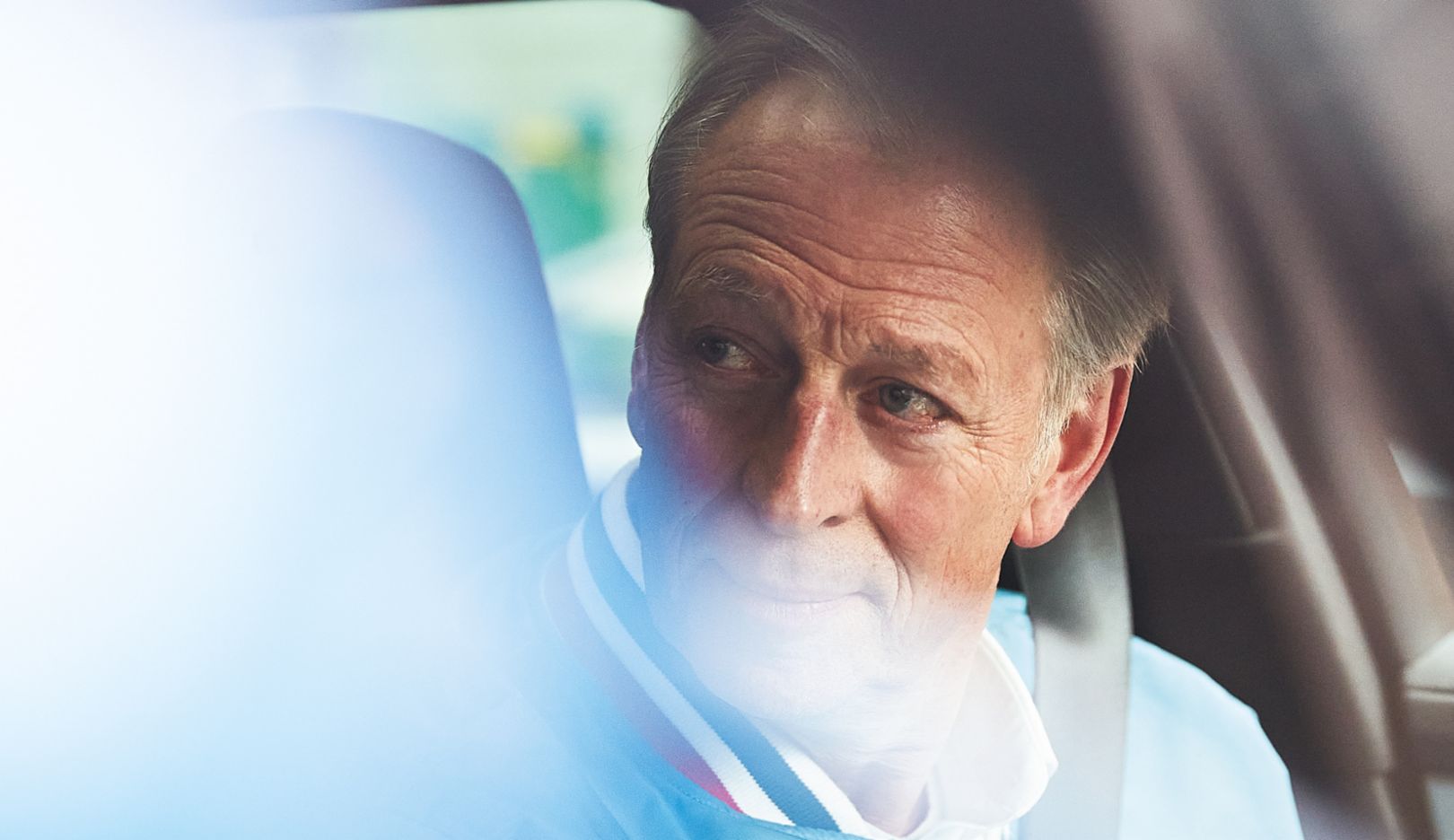
Creativity:
Entrepreneur Arndt-Helge Grap can find the right sound for any location.A media player was therefore installed on the AIDA to which new songs could be uploaded via satellite anytime. Grap developed eight different music programs including for the sundeck, the Italian restaurant, the gym, the bar, and the casino. The time of day was factored in, too – mornings sounded different to the afternoon, evening, and night. “Much like interior designers selected the furnishings, we picked the sound design,” says Grap. Tediousness was taboo – if Mariah Carey was played at nine o’clock during the breakfast buffet, that song was then banned during this time frame for the next four days. “It takes sophisticated coding, a lot of knowledge, and a feel for music to take all the factors into account in order to create the desired atmosphere. This was our job.”
Soon after the job was done, an email arrived from the AIDA Club director: “The ship is dancing on the waves.” When Grap read this sentence, he had a feeling this job was merely the overture.
Grap was 39 at the time. A brilliant guitarist who had never become a professional musician. An outstanding music expert who had never become a music teacher. A passionate presenter who couldn’t bear it in the world of radio. So what now? He sat himself down on a quay wall in the port of Hamburg and mulled things over: “Who else needs what we just developed for the AIDA?” When the sun set, his notepad was full. Everything else then fell into place and Grap founded Radiopark.
“Interior designers select the furnishings – we pick the sound design.”
Arndt-Helge Grap
“It all started in 2003,” he says. He feels like the stars aligned. Back then, the speakers in hotels and department stores blared out distressing sounds. Elevators, restaurants, and department store floors were flooded with the sounds of tacky electric pianos, whining saxophones, and musty panpipes. In contrast, Radiopark promised an acoustic ambience of well-being. This remains the case to this day, and the business model remains unchanged, too – customers subscribe to the program and, if necessary, also rent the technology. The music can then unfold its almost magical effect. People become more relaxed, more communicative, more attentive – in other words, they bloom.
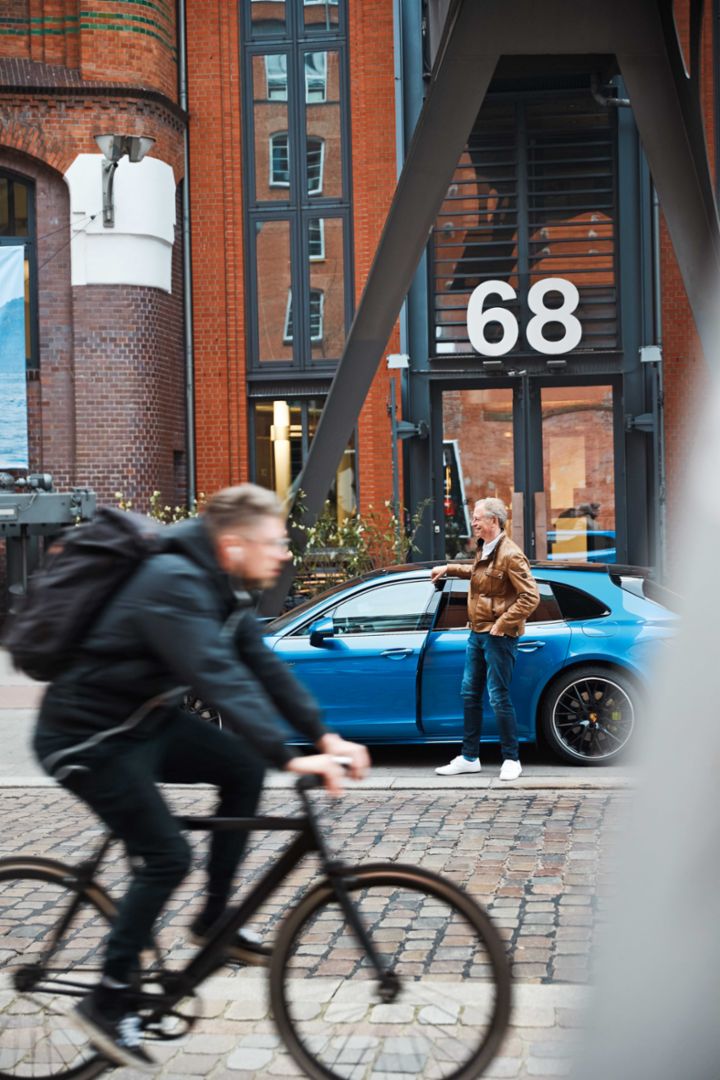
A daily dose of Porsche:
Grap visiting a customer in Hamburg. The family man drives a Panamera 4S E-Hybrid Sport Turismo – preferably in full electric mode so that he can hear his music better.This works in luxury hotels from Berlin to Dubai, in the Maldives, Bangkok, and Santiago de Chile, at holiday resorts, in department stores, and at sports arenas – and, of course, still on the major cruise ships that sail the oceans. Radiopark even raises the spirits of container ship crews. “They hear songs from all over the world, depending on where the crew comes from. Music serves as a little piece of home on the high seas,” says Grap.
Radiopark has been compiling background music for the Porsche centers in Austria for the past three years, and Porsche Middle East is about to join them. Music as an acoustic image bearer, as a stimulant for customers and employees.
When it comes to Porsche, Grap’s professional standards are intertwined with a personal passion. He bought his first model, a 911 Targa, type 997, in Midnight Blue Metallic with a beige interior, in 2014. As Grap’s children – he is the father of two boys – grew, so too did the car. “First it was a normal Panamera, then a Panamera 4S E-Hybrid Sport Turismo,” he says. “The car stands for everything Porsche stands for.”
What’s the sound of the plug-in hybrid Panamera? Not the engines, but the car itself. Again, Grap tilts his head as if he were listening to a sound from far away. Then he starts talking. “My playlist for a smooth drive begins with Arms of a Woman by Amos Lee, followed by Hit the Ground by Lizz Wright, and Blue Train by John Coltrane.” Grap is in his element. Does he ever switch off? Does he not need silence from time to time? “I live in the country, so I listen to birdsong, too,” says the businessman. “But I would rather listen to music."
What’s the sound of Porsche?
Arndt-Helge Grap knows what it should sound like inside a Porsche – and has created a few playlists to set the mood on the road. Listen for yourself!
Consumption data
911 Turbo
Macan Electric
-
19.4 – 16.8 kWh/100 km
-
0 g/km
-
A Class
Macan Turbo Electric
-
20.7 – 18.4 kWh/100 km
-
0 g/km
-
A Class
